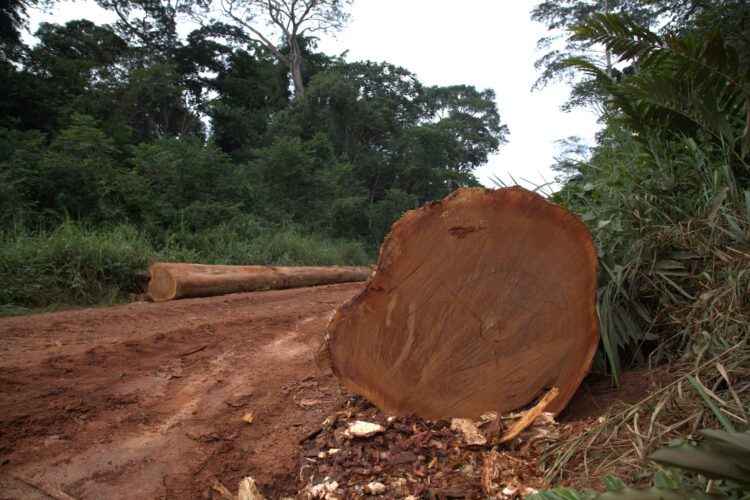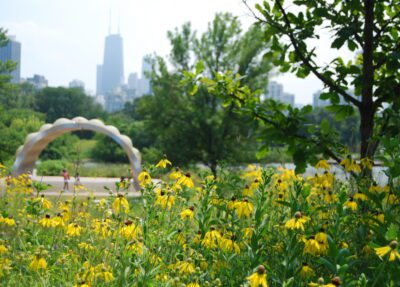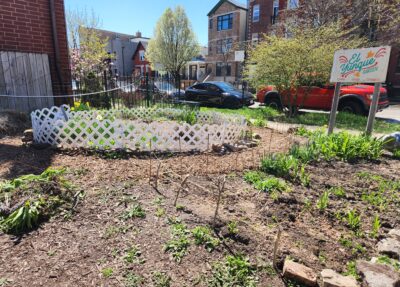Diving Deeper: Goualougo Triangle Ape Project, Part VI
To retain the pristine nature of the Goualougo Triangle in the Republic of Congo and protect its amazing biodiversity, Goualougo Triangle Ape Project (GTAP) Principal Investigator David Morgan, Ph.D. a research fellow at Lincoln Park Zoo, and his associates and partner organizations work tirelessly to combat the issues the region faces.
As the increasingly urban lives of Congolese citizens encroach upon the rainforest ecosystem, it’s that much more important to protect the animal and plant life that resides here. Much work has been accomplished—but there’s so much more to learn and to do, if we are to make sure future generations can benefit from the resources found within.
Here are three major issues this region of the Congo faces:
Wildlife Trafficking
With charismatic large mammals like apes and forest elephants, plus a whole host of other important species, poaching is a huge problem in the Goualougo Triangle. Wildlife trafficking is a major threat around the world, but here, in an area Time Magazine called “The Last Eden” and National Geographic has called “The Last Place on Earth,” the concentrated decimation of animals and plants is a significant loss to the world. We have not yet finished cataloging all the new-to-us sub-species here.
In many tropical forests, unsustainable and illegal hunting activities are one of the biggest threats to biodiversity. Elephants, of course, may be poached for their valuable tusks, which cannot be taken without a death toll. Apes might be illegally trafficked as pets or bushmeat. Songbirds are often valued by buyers for their beautiful colors and voices.
Animals may be valued for their body parts, like fangs, skin, antlers, and shells, and demand is driven by the desire to own them, decorate with them, or use them as traditional medicines. Even for those who people want animals as pets, poaching is extremely dangerous. Along the way, many animals die because they aren’t being transported in proper conditions, or they are restrained in ways that are dangerous to their health. “Where we do research, poaching is a major threat, particularly with elephants—they’re highly sought after for their ivory,” Morgan says. “But other species as well can be indiscriminately taken, or taken at random.”
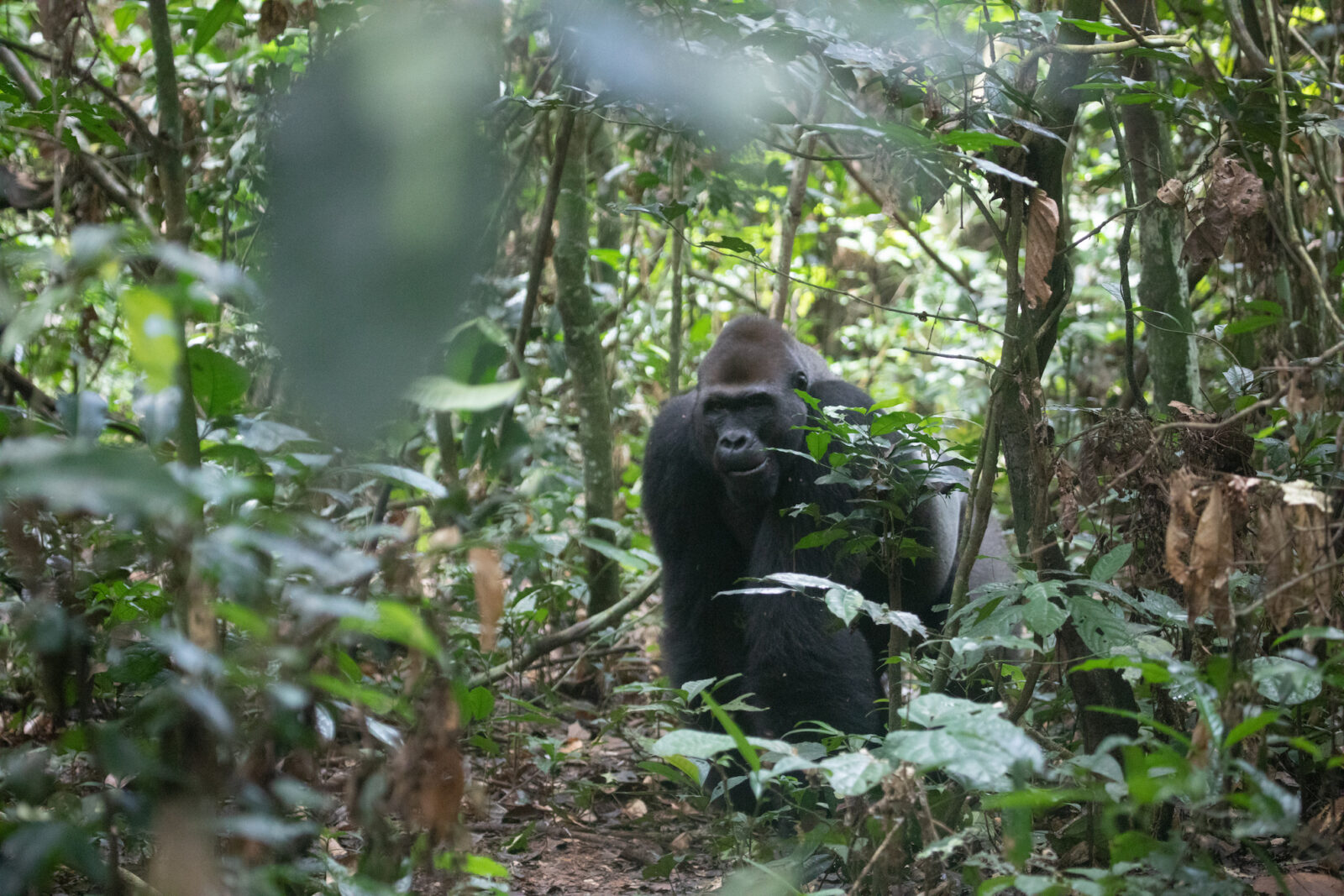
Protecting wildlife and wild places from illegal activities like poaching requires teamwork and communications from a variety of community members. GTAP staff members act as force multipliers as they monitor the remote forests of the Goualougo and Djéké Triangle on a daily basis and inform local park officials of illegal activities. Professionally trained Eco-guards, overseen by the Wildlife Conservation Society, are employed to enforce the laws protected wildlife and forests from wildlife poachers in the protected areas and their neighboring buffer zones.
And this data can be provided to governments, who can strengthen the judicial system at local levels that assist in deterring the killing of protected species and other illegal activities before they happen in protected areas like these. Meanwhile, scientists gather and share information that is used to connect people to the lives of these apes and educate them about the important role they play in the forest ecosystems we all share.
Deforestation
Deforestation is a problem being experienced everywhere humans are developing more spaces for their own use, from grazing livestock and planting crops to building infrastructure for cities. The forests all around Nouabalé-Ndoki National Park have been designated as multi-use and are currently being exploited mostly for the timber industry. The clearing of land reduces wilderness areas and increases roads, which leads to more hunting, while changing the forest’s ecology in sometimes unpredictable ways.
Not only does deforestation often release carbon dioxide into the atmosphere, contributing to climate change, it leaves soil more vulnerable to erosion. Researchers also believe that deforestation leads to a higher risk of disease, both in human and animal populations, as it makes the transmission of pathogens easier.
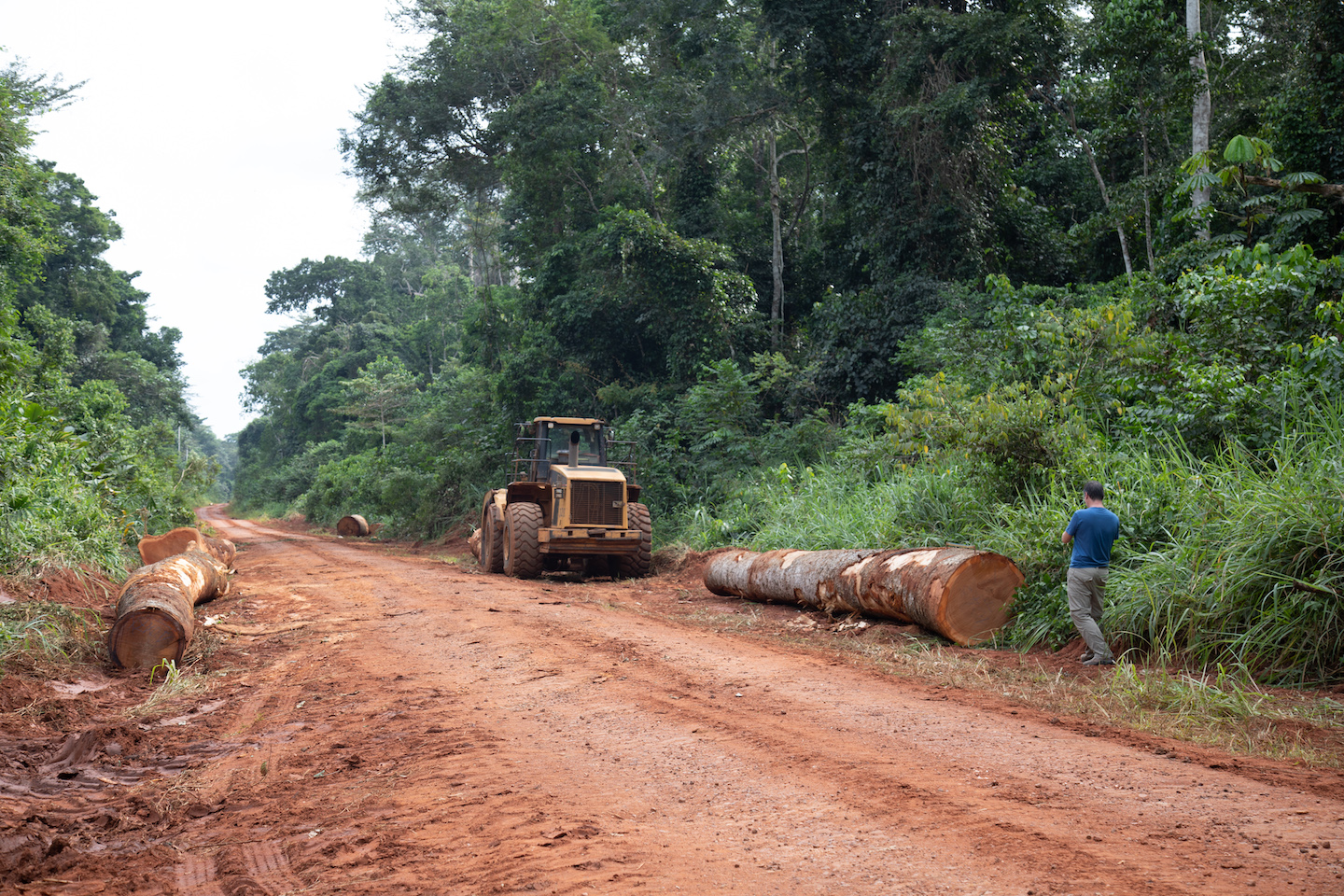
Along with that, logging operations in an area often end up being a “gateway” activity, leading to additional development and decimation of animal populations—often, logging inadvertently makes poaching easier. To get trucks in and out of the area, they must construct road networks. But those roads also open previously inaccessible areas up to poachers, who can then ship out bushmeat and wildlife products much more easily. And when companies build settlements to house the people that work in the forests, demand for those items goes up.
But all this development is necessary to help rural human populations, so it can’t just be halted.
Instead, certain logging companies often work in a planned cycle that’s designed not to deplete natural resources too quickly—after all, they don’t want to destroy their own livelihoods as they harvest trees. Many use a rotation of 30 years or so that allows for stability and sustainability, at least by their standards. Unfortunately, that cycle may not be long enough for the survival of many species.
“These forests are exploited—two, three, four rotations down the road, you’re going to start to see real degradation of the forest,” Morgan says. “That’s what we are expecting. So, we’re trying to avoid that by working with the company and protecting particular resources that may be important to the apes or wildlife.”
In this statement, he’s referencing one of the unique aspects of the community he and others have built in the Goualougo Triangle: GTAP has an ally in Congolaise Indusrielle du Bois, a logging company that is based in Northern Congo. CIB has campaigned to exclude timber products that have been illegally sourced and generally fights the unethical logging of timber in the country. As a Forest Stewardship Council-certified company, CIB has shown its commitment to responsible forest management.
In Goualougo, GTAP has worked with local villagers, the Wildlife Conservation Society, (WCS), CIB, and the Congolese government to make sure the forests—not just within the park, but also around it where animals range—are not over-exploited. Eventually, the groups agreed on a flexible-use planning approach that now governs how business is done in the region while protecting valuable forest land.
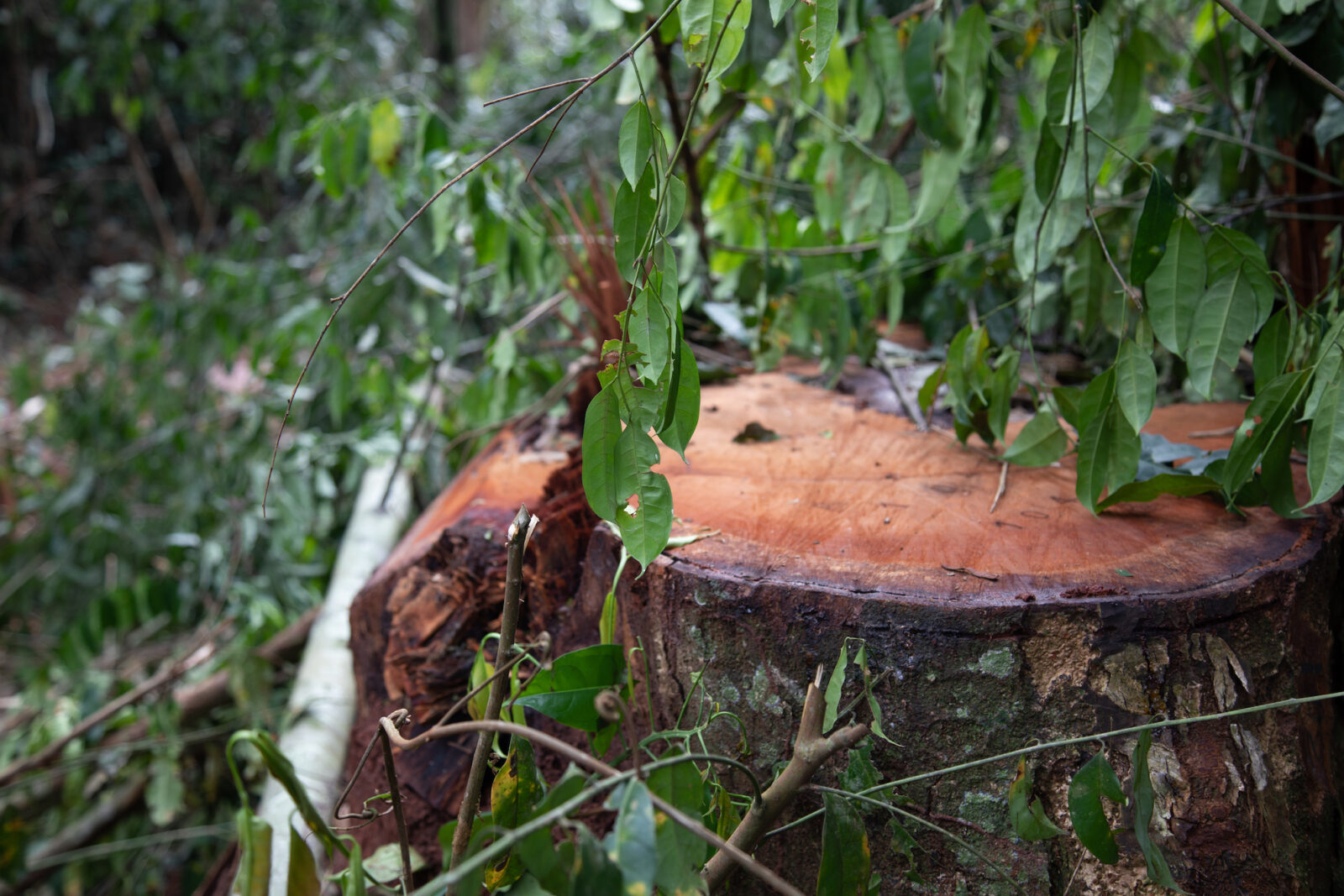
There’s still plenty of work to be done, of course, but these kinds of friends are the ones the gorillas and chimpanzees—along with all the other animals in the Congo—need as we work toward a future teeming with biodiversity, in which humans and animals can thrive together.
Disease
As many people know, chimpanzees, followed by gorillas, are humans’ closest living relatives; human and chimp ancestors are believed to have diverged between 4–8 million years ago. Chimpanzees have almost 99 percent of the same genetic material that humans do.
It also means that what affects apes affects us—and vice versa. They can share many of the same diseases that affect humans. In fact, Ebola has emerged time and time again in the Congo, causing massive die-offs of both humans and animals.
“We have to respect distances to them; we have to protect them as well as our teams,” Morgan says. “We know (that) 200 kilometers south of us in the early 2000s, high numbers of gorillas and chimpanzees disappeared because of Ebola. We’re talking 40–50,000 apes during some of these outbreaks. Nobody was really out in those forests, surveying at that time or doing research but it’s clear the populations out there were decimated.”
Thankfully, there haven’t been new cases of illness in Nouabalé-Ndoki National Park, but recent surveys suggest that insects such as blowflies, which can be vectors for disease, have a low level of anthrax that the team is monitoring. The Congo Basin remains an epicenter of emerging infectious diseases, which means that GTAP is instituting inquiry-driven research within the One Health framework to better understand disease ecology in the region, from pathogens to parasites.
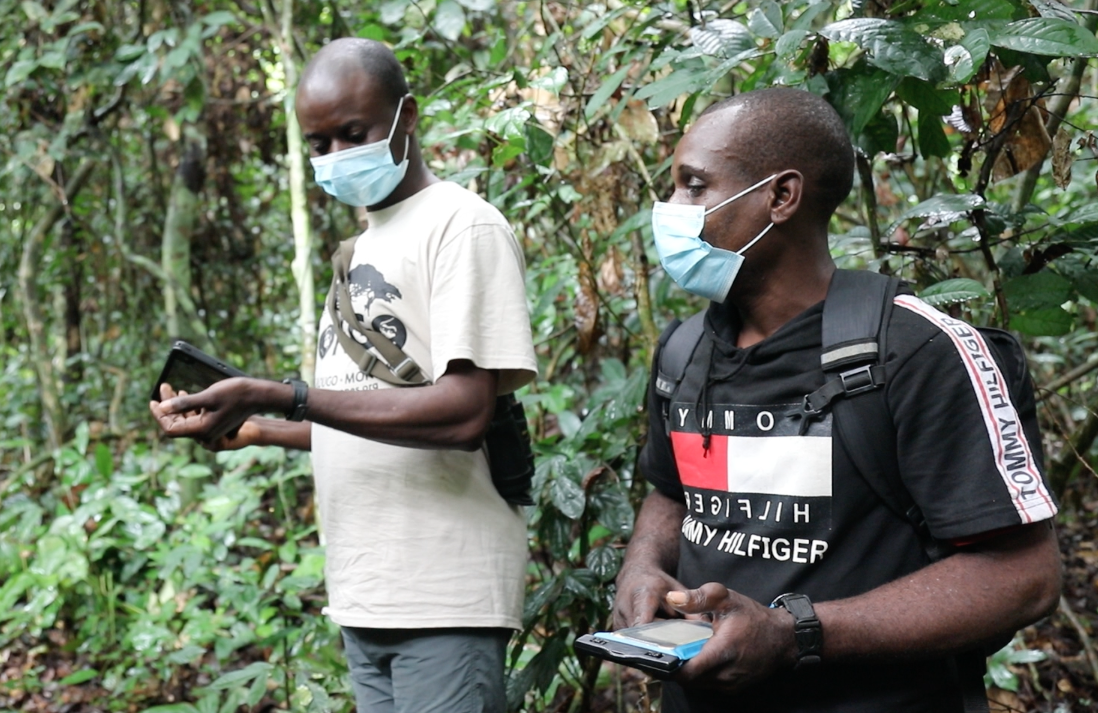
The One Health approach is a scientific endeavor that looks at wellness through the lens of interconnectedness between animals, plants, humans, and the environment. It’s a model that Lincoln Park Zoo has championed not just in Goualougo, but everywhere, including the urban ecosystem of Chicago.
On an operational level, One Health means that scientists coordinate and collaborate through multidisciplinary approaches at different levels. They look at interactions between the different players to understand the risks and learn better how to fight health problems such as zoonotic disease, so that all beings in an ecosystems can thrive.
How to Help
The Congo may seem far away, but as we’ve all learned (thanks to a global pandemic), what happens on the other side of the world can quickly become a problem everywhere. But some issues also seem larger than life and difficult to tackle, and this can be especially true of environmental issues such as climate change and poaching.
However, all is not lost. You can make a difference, one action at a time. Here are three quick and easy things you can incorporate into your daily routine to help animals and plants in the Congo Basin and around the world.
1. Support Healthy Forests
The Forest Stewardship Council (FSC) was created in 1993 to help stop deforestation and safeguard forest ecosystems using the power of the marketplace. CIB is a member of the FSC, and you can support companies like it by looking for the FSC symbol on your goods. When you buy an item with an FSC logo, you’re making a purchase in support of the planet, and every little bit helps.
- Let Primates Be Primates
Research from scientists at Lincoln Park Zoo have pioneered research showing that primates in television shows, movies, ads, and other pieces of media can negatively impact animal welfare as well as conservation efforts. If you make a conscious effort to not share images of primates on social media and avoid situations in which you’re paying to pose next to one or watching them on TV, you are helping.
- Ask for the Origin
Wildlife trafficking is a huge problem around the world, and not just in other countries. In fact, the U.S. is one of the largest consumers of wildlife products, many of which are illegal. You can learn to be a savvy traveler and shop for goods that aren’t trafficked or prohibited. To do so, simply ask about the origin of items you see for sale that look like they contain animal parts. By making sure items you buy are sustainable and safe, you can make choices that help save wildlife. Learn more at itravelforwildlife.org/ord.
And of course, spread the word. The more people know about these issues, and what researchers here and overseas are doing to help animals, the more of a difference we can all make to save species, like the ones that live in the Goualougo Triangle.
TAKE THE QUIZ!
Now that you know something about the Goualougo Triangle and Lincoln Park Zoo’s work there, try your hand at acing this quiz about what you’ve learned.
